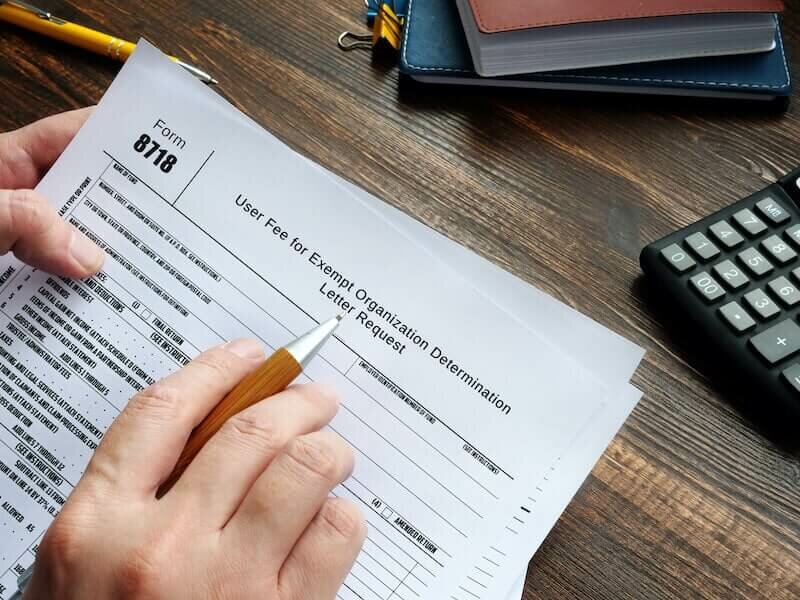Texas is one of nine states in the U.S. that doesn’t collect personal income taxes, but relies almost exclusively on sales taxes and taxation of property, be it business or personal. As such, Texas ranks sixth as a state with the highest average property tax rates, which currently averages at 1.60%.
This means that the Texas property taxes remain among the highest property taxes in the nation, while the overall tax burden remains one of the lowest. These taxes are assessed and administered at a local level, meaning that there’s no state property tax.
Instead, property taxes allow local governments to pay for public schools, roads, police and emergency response services, parks, and other services provided by local governments. In this article, we’ll get acquainted with property tax laws in Fort Worth, what property taxes are, and what exemptions you may qualify for to reduce your tax bill.

Property Taxes in Fort Worth
Property and homeowners in Tarrant County are subject to different taxing units, which set the budget for the fiscal year and establish a property tax rate that allows them to meet the revenue goals. With median home value being $170,300 and an average real estate tax amount of approx. $3,500, it’s easy to deduce that the average tax rates in Tarrant County are quite high, sitting at 2.10%.
Tarrant County’s seat, Fort Worth, features a median home value of $154,000 and an annual property tax payment of $3,357.20, which means that the effective property tax rate in Fort Worth is 2.18%, one of the highest rates in the county. The city doesn’t have county taxes or state property tax rates; all local tax rates are managed by local taxing jurisdictions.
It’s worth noting that Fort Worth city managers have stated that the city will reduce property taxes for 2022 from $0.74 per $100 to $0.73.
It’s also worth mentioning that Fort Worth is seeing an influx of newcomers from other areas, and welcomes nearly 20,000 new residents each year, and is currently ranked 12th in population among United States cities.
Due to this influx of newcomers and high property taxes, property owners are selling their secondary residences and real estate to companies that buy houses in Fort Worth.
In addition to conducting business in Arlington and Fort Worth, Four 19 Properties can help you sell your property faster, at a reasonable price, and encourage you regarding accepting cash offers on your house while steering you away from the home-selling costs to avoid.
How do Property Taxes work in Texas?
Property taxes in the state of Texas are assessed and collected by various local governments and used to fund cities, entire counties, school districts, special districts, and other government services.
The Appraisal District
The appraisal district’s primary responsibility is to appraise all the residential property in its jurisdiction at a fair market value, the price at which the property would transfer for cash or its equivalent. Appraisal districts also administer and manage tax exemptions and create the appraisals for taxing units.
Taxing Units/Jurisdiction
Taxing units, or jurisdictions, are actually cities, counties, schools- and other special districts. They’re responsible for establishing and adjusting the tax rate, which would apply to the appraised value of your home, to establish your tax bill.
The Tax Assessor-Collector
Tax Assessor-Collectors are actually responsible for formulating your tax bill. They take the appraisal district’s tax roll and apply the local tax rates to the property’s appraised value to generate the property tax bill. In short, the tax bill taxpayers receive in October is calculated by multiplying your home’s appraised value with a local tax rate.

Texas Property Tax Exemptions
Texas offers several tax exemptions from local property taxes. These exemptions can be either partial or absolute, with the former removing a percentage or a flat-rate amount of the property’s value from taxation. The latter removes the entire property from taxation.
In most cases, filing for tax exemptions requires filing an application with the county appraisal districts for the upcoming tax year. However, Texas Property Tax Code exemption requirements tend to be extensive, and property owners should read the applicable statutes carefully. Here are the most common tax exemptions:
Homestead Exemption
Under this exemption, homeowners can qualify for a reduction of 20% of their properties’ appraised values. However, this local exemption cannot be less than $5,000 or greater than $25,000, depending on the total appraised value of their personal property.
Property Tax Exemptions for Seniors and Disabled People
Texans aged 65 or older, or those who are disabled, qualify for additional tax exemptions of $10,000. However, this local option exemption can’t be less than $3,000. If the homeowner, aged 65 or more, dies, the surviving spouse may continue to receive the local exemption, provided that they’re 55 or older, at the time of death, and lives in the tax exempted home.
A person with disabilities must meet the definition of disabled under the Federal Old-Age, Survivors, and Disability Insurance Act to qualify for an exemption. Elderly citizens with disabilities, age 65 or older, may receive both exemptions in the tax year; however, those can’t originate from the same taxation unit/jurisdiction.
Property Tax for Disabled Veterans
The Texas property tax system provides partial tax reliefs for any property owned by disabled veterans, their surviving spouses, and children. This includes homestead residences donated to disabled veterans and extends to surviving spouses that haven’t remarried.
The same tax system offers surviving spouses of US armed service members killed in action a total, or absolute, property tax reduction on their homestead, only if the surviving spouse hasn’t remarried.
An Exemption Example
As an example, let’s say the local tax appraiser in your area determined that the market value of your home is $200,000. The state allows you to apply for an exemption of up to 20% of your home’s appraised value. That would be $50,000 in this case; however, tax exemptions in Texas have an upper limit of $25,000. This means you would be paying taxes on a $175,000 property value instead of the actual $200,000 property value.
Instead of paying $4,360 in taxes on a $200,000 property value, you would pay $3,815, which would save you $545 in taxes annually. Some Texas counties also allow for a separate tax exemption of up to $20,000, depending on where you live. This could pose a significant tax savings opportunity, so it pays to research this on a local level.
Note: The general rules, regulations, and procedures regarding Texas homestead tax exemptions come from the state taxation official. However, individual counties can implement said exemptions in different ways, so the exact requirements and amounts can vary from county to county.
Constitutional Standards of Texas Property Tax
The Texas Constitution imposes several restrictions and limitations on the ability of the Legislature and local governments to impose taxations. Most of these limitations concern local property taxes, with certain sections prohibiting statewide property taxes. Here are five basic rules for property taxes in Texas:
- Taxation must be uniform and equal, meaning that no single property should pay more in taxes than its fair share
- All property must be taxed based on the current market value of the said property, a price for which it would sell when both parties seek the best price, and neither is pressured into purchasing or selling the property
The notable exception to this rule is the use of the property for agricultural or timberland purposes, in which the tax is based on the value of what the property produces. This effectively reduces the tax bills for such properties - Each property within a county must have a singular appraised value, guaranteed by country appraisal districts. This prevents local governments from assigning different values to your property, as all must use the same value
- All property is subject to taxation according to Texas law unless the federal or state law exempts it from taxation. These exemptions can be partial or absolute
- Property owners have a right to reasonable notice of increases in their appraised property value, which effectively increases their taxes
Endnote
Fort Worth shares the property tax laws with the rest of Texas cities. Admittedly, its tax rate is among the higher ones in the state, but the overall tax burden is lower than the nation’s average due to the lack of income taxations.
If you’re interested in learning more about property taxes and home sales taxes in Fort Worth, contact Four 19 Properties – we buy houses Texas taxpayers are willing to sell fast, and for cash payment.
